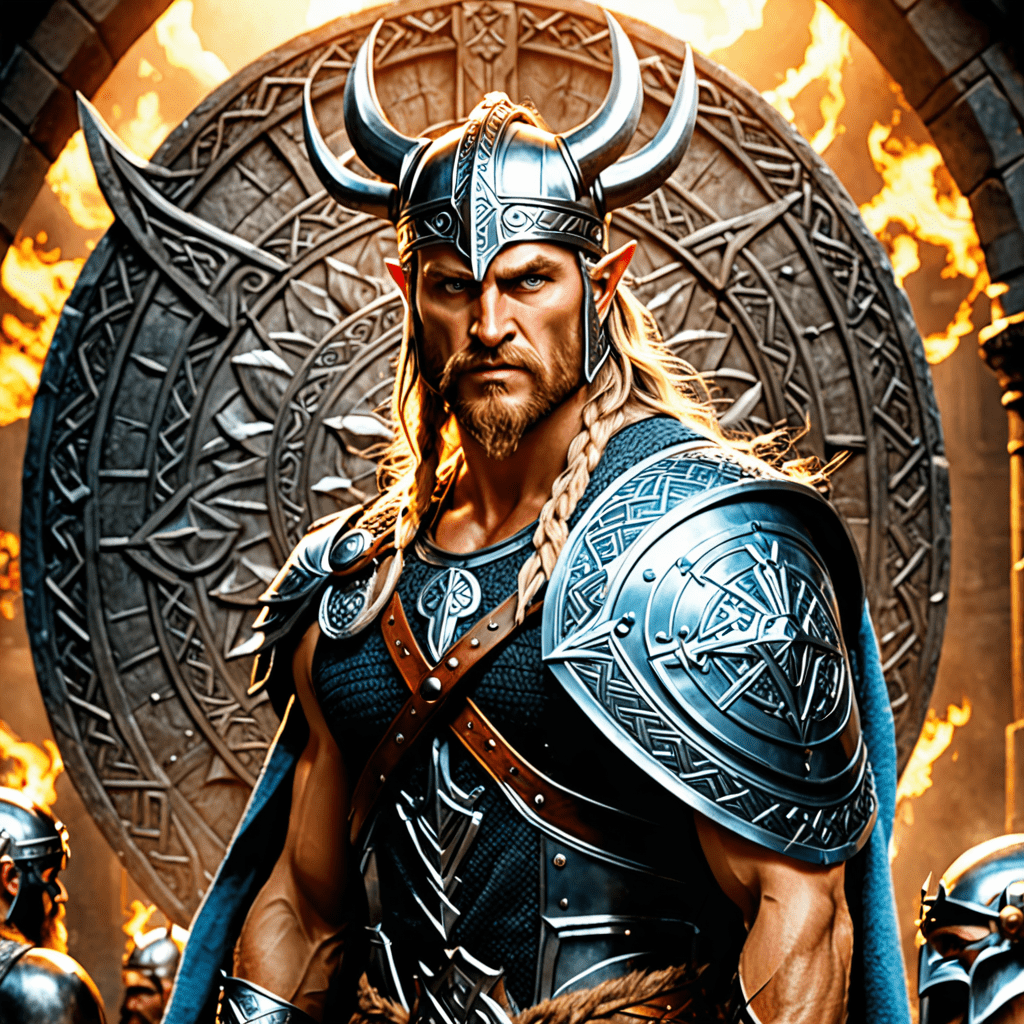The Influence of Norse Mythology on Norse Laws and Justice
Introduction
Norse mythology, characterized by legendary tales of gods, giants, and mythical creatures, profoundly influenced the laws and systems of justice in the societies of ancient Norsemen. From the Poetic Edda to the Prose Edda, these myths not only entertained but also provided a framework for the moral and ethical guidelines that governed the lives of the Norse people.
The Role of Mythology in Shaping Laws
Myths and sagas served as more than mere stories in Norse culture; they played a crucial role in establishing societal norms and values. The Aesir gods, like Odin, Thor, and Loki, embodied virtues and vices that were mirrored in the laws that governed interpersonal relationships, inheritance, and justice.
Aligning Mythical Concepts with Justice
Norse mythological themes of honor, vengeance, and fate resonated with the concepts of justice in Norse societies. The idea of ‘Wyrd,’ a belief in a cosmic destiny or fate, influenced the Norse legal system, where blood feuds and restitution were methods of restoring honor and balance in cases of wrongdoing.
Moral Lessons for Legal Systems
Mythological stories were more than entertainment; they served as cautionary tales and guides for behavior. The tragic outcomes of gods and heroes shaped the understanding of right and wrong, emphasizing the importance of upholding oaths, seeking retribution, and maintaining harmony within the community.
FAQ: The Influence of Norse Mythology on Norse Laws and Justice
What role did Norse mythology play in shaping Norse laws and justice?
Norse mythology heavily influenced Norse laws and concepts of justice. The myths often portrayed gods and goddesses dealing with moral dilemmas, setting examples of expected behavior, and consequences for breaking societal norms. These stories served as moral compasses for the community, influencing the development of laws and justice systems.
How did Norse gods and goddesses impact the legal system?
Norse gods like Odin, known for wisdom, and Tyr, associated with justice and law, were revered figures whose characteristics were reflected in the legal system. Their values and actions set standards for fairness, truth, and accountability, shaping the expectations of individuals within the society.
Were there specific myths that directly influenced Norse legal practices?
Myths such as the story of the binding of Fenrir, where the gods used deceptive means to prevent a potential threat, highlighted the importance of upholding oaths and agreements. This myth, among others, likely influenced the legal emphasis on fulfilling contracts and the severe consequences for oath-breaking in Norse society.
